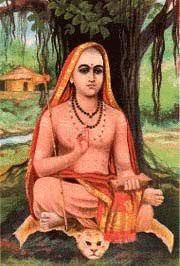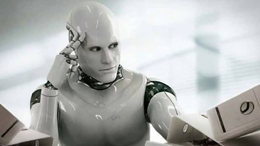Consciousness and health
Artificial Intelligence
Abstract
This article questions whether Artificial Intelligence is a boon or a curse. Like other scientific discoveries that have made life a little easier but have added social and other problems by the overuse of their gifts, will this new fad in technology also follow the same fate? What is the relationship of AI and mechanisation to the human being, and more importantly to being human? The writer ponders on spiritual teachings of ancient India about the usefulness of a tool and the nourishment of the soul. Are the two incompatible? Where do we place science in the constellation of our life? And something like AI that mimics the human brain, or does it?
Once there was a king of great resolve. He prayed to the lord with such steadfastness anthills grew around him. The lord appeared and he was granted a boon. He chose to be undefeatable which means he would live almost forever. Instead of helping people with his divine gifts he turned against them. His unripe ego felt godlike and he demanded all to worship him. Now too we see these Hiraṇyakaśipus all around us, walking with over-sized egos. They can be individuals or organisations. They turn every boon to barbarism. I see Artificial Intelligence as such a boon that has come to man. Some are making good use of it; some are abusing it to serve their inflated egos. Often I wonder if the power was granted too early to man.
Teachers of mysteries made sure only the deserving, the arhat, got the secret knowledge. Even if it came into the wrong hands, it took a lot of effort to unlock the powers, which these unworthy people were not capable of. But tools or boons of science don’t require soul power. Ambition and curiosity are enough. The only way the titan can be contained is by avataric intervention, or by rules and regulations set by the arhat, the deserving. Meanwhile the undeserving can be educated to become deserving of such a power. And like all education, it is an awakening. Since I worked in the technical field for many years and had a chance to look at artificial intelligence from up close, I would like to share some observations.
Mechanisation
The companies that created ecommerce software in the 1990s were at the cutting-edge then. No more waiting in queues in the bank, watching tellers fumble with keys and cash. No more begging for a loan, no more going to a store where your article is just out of stock. Of course, some people, figured out how to rob banks over the Internet, but that did not displace the ecommerce gods. Then the superpowers descended and took over the earth. We call them Artificial Intelligence and they have many of us lying prostrate at their feet. For us humans surrendering to machine gods is an old habit. We have always believed in magic and the lesser we had of it the more we yearned for it. When the phonograph replayed our voice, it was magic. When we could talk to a person miles away, it was magic. When we could see them, it was magic. Every year we started getting new magic, and now every month we get them.
Consequences of mechanisation
But not all people get favours from the machine gods. Ever since the industrial revolution two classes were born. One used the products made by machines, the other ran the machines. Individual entrepreneurs became factory workers. Instead of weaving their own cloth with handlooms, they fed cotton into textile machines. Instead of shovelling hay to their horses, they shovelled coal into steam engines. They breathed an air laden with coal dust, lived in ghettos without running water and toilets. But they had hope, which sustained them. Hope that someday they’d be able to ride on these steam engines and go on holidays. Man does not see the preposterous end to which he is being drawn by his own inventions. The underprivileged are working longer hours making the ever multiplying machines work, competing with machines that are outsmarting them, and on the whole leading a miserable life. And this includes white-collar jobs like software engineers, who are handsomely paid but have little stress-free time and energy to go on holidays or philosophise.
Maybe there is a privileged class that’s enjoying the gifts of mechanisation without being slaves to it. All they have to do is click mouse buttons and utter commands like “Alexa, start, Alexa, stop”. But what does such a lifestyle do to a person’s psyche? It not only makes him lazy, anti-social, and impatient with humans, but it makes him a heartless machine. Machines deliver our vegetables, cook our food, wash our clothes, dishes, homes and cars. They massage us, play music for us, and show us dance videos. With virtual reality there will really be a charming girl dancing before us; only she would not be dancing for us exclusively. And then we’d realise with some regret, she’s real, and we are real, but our interaction is fake. She isn’t even there in front of you, she is in a studio doing her routine in exchange for money for whoever can afford her. How sad is that? Poets in the past repaired themselves to taverns to repair themselves of such impertinences. People in the present pair themselves with devices that cure their impertinence with some other impertinence. It reminds me of Omar Khayyam:
“Into this Universe, and why not knowing,
Nor whence, like Water willy-nilly flowing:
And out of it, as Wind along the Waste,
I know not whither, willy-nilly blowing.
What, without asking, hither hurried whence?
And, without asking, whither hurried hence!
Another and another Cup to drown
The Memory of this Impertinence (1)!”
Replacing handmade pottery with a mass-produced cup is an impertinence. Taking away the livelihood of a needle artist with machine embroidery is an impertinence. Sure, a machine is more efficient and talks less nonsense. And now with Artificial Intelligence, they are almost as good as humans, which means they can answer back smartly. They can also choose from multiple options but can they choose what’s best for their soul — hardly, for they have no soul. Will they choose what’s best for their owner’s soul? Probably not, because an AI machine can at best judge what it has been taught to judge. The algorithm was written by human minds, and the data it chews is fed by human behaviours. On the contrary, human biases get amplified in AI.
I would not let an AI machine judge anything that has remotely to do with humans; like who is being hired, who is under-performing, who needs to be barred from entering a club, who gets to own a gun, who qualifies for a loan. My ideal AI machine would be a beetle-sized stealth bomber that gobbles mosquitoes and takes them on a magic carpet ride until of course they starve to death in the beetle’s belly. Another is an army of small devices that swim in the sea eating up non-biodegradable waste and making of them dense bricks that can be used in construction. Of course if AI machines could share the sky with birds and kites and could clean the air that would be great too. I know AI glasses help autistic people read emotions. But I suspect there are devices making normal humans autistic. I have seen people laugh at jokes on their phones, but cannot read sorrow in their mothers’ eyes. Some men would be happier if they had married machines, and some women are sure their husbands have indeed married machines.
Cultural loss
Pacific Islanders could tell the location of islands in open seas by studying the waves hitting against their boats. Now wireless technology gives them more information. Is the Pacific Islander richer by it? An Eskimo could survive in a blizzard because he knew the wind and the land like a migratory bird knows its route. Now there is no need to live in severe cold or heat when machines can conjure up the right temperature. The medicine man heard plants whisper him remedies. But now there’s no one who would learn from him. His children believe in laboratory experiments and factory-made pills. Language, beliefs, cultures, communion with Nature, openings to other realms and spiritual connections are getting snapped. But man is still curious to push the envelope. So he ventures into dark terrains, such as how to hack into a banking-system, or create dirty movies, or type up hurtful comments. Machines are making humans redundant by taking away their skilled jobs. And a human without any natural skill is truly redundant — Nature may think so too. And we know she can retire useless species.
We want AI to solve problems, not create new ones. We want Alexa to tell us to be kind to our loved ones, to the trees, the animals, to the machines we use. Maybe she can remind us to tell them we are grateful, that we love them. When we are swearing she can utter a beep, when we are shouting, she can honk a warning, when we are sad she can pray with us. There are apps that encourage you to exercise and meditate and motivate you by giving you points. Wouldn’t the voice of conscience you cannot silence be a cool app? I wonder whose algorithm it will run — the average human’s, your religion’s, your guru’s, or something you could tweak at will? You know what — forget the app. You already have it built in. You have the most reasonable, adaptable, just and noble organ in yourself. Sometimes it lodges itself in a most elastic thing called the brain, or in the compassionate heart, or in something purer and surer, the soul. And this thing, the conscience, gets activated by looking at others’ expressions, by sensing their feelings, by touching their hearts, by living and loving consciously.
Wisdom texts
A long time ago, some 1,500 years back, Saint Shankaracharya found a man struggling to memorise grammar rules. He pitied the fellow and told him life was too short to throw it away in useless pursuits. Rather nourish your soul by thinking of the lord. Pray to Govinda, pray to Govinda, O fool, for at the time of death grammar will not come to save you.
भज गोविन्दं भज गोविन्दं
गोविन्दं भज मूढमते ।
सम्प्राप्ते सन्निहिते काले
नहि नहि रक्षति डुकृङ्करणे ॥ १॥ (2)
“bhaja govindaṃ bhaja govindaṃ
govindaṃ bhaja muḍhamate.
samprāpte sannihite kāle
nahi nahi rakṣati ḍukṛṅ karaṇe.
The body is weak, the head is bald, the teeth have fallen, the old man walks leaning on a stick, and yet he clings to desires.
अङ्गं गलितं पलितं मुण्डं
दशनविहीनं जातं तुण्डम् ।
वृद्धो याति गृहीत्वा दण्डं
तदपि न मुञ्चत्याशापिण्डम् ॥ १५॥ (2)
aṅgaṃ galitaṃ palitaṃ muṇḍam
daśanavihīnam jātaṃ tuṇḍam.
vṛddho yāti gṛhitvā daṇḍam
tadapi na muñcatyāṣāpiṇḍam.
If Shankaracharya came by now, how many more useless pursuits would he find? I wonder if he would also find some new soul nourishments.
The ancient artists in India took a lifetime to build a temple. They carved a goddess in stone and made her so full of life that a person stopping by carried her spirit with him, which was hundreds of years old but also timelessly eternal. In that age, there were thousands of soul nourishments. Every pursuit of life, whether of high art or simply offering a glass of water, could be done with a sense of sacrifice to the Supreme. All life was a yajña, an offering. And the answering grace united the individual soul to the supreme soul, making all life yoga.
So we hear about our past, and sigh. Can we make all life an opportunity for spiritual growth in the modern age? Let me take an extreme example. Can we look at an angry fundamentalist threatening a comedian’s life for airing views on fundamentalism and make it our soul food? Maybe just a snack? Shankaracharya, this is the grammar we are dabbling in, give us a new formula. Don’t ask us to quit and pray. We need money for food since nobody feeds sannyāsis these days — you’d know it if you saw their wiry naked frames. Don’t remind us we are growing old and ugly. We know, why else are we dieting and applying creams? And if you ask about relationships, I am intimate with five devices, and sure they cheat on me once in a while, but I give them the boot too.
Then I heard the voice of the ancient one, Ādi Shankaracharya, “You don’t have to be a sannyāsi to know that bondage to the ten thousand things is a trap.” Arjuna was making the same mistake and Govinda, that is Śrī Kṛṣṇa, explained it to him. It took him 18 chapters, no less, and the imminent threat of Karṇa’s arrows. I compared the slippery water droplet on the lotus leaf to life’s ephemeral joys in my poem bhaja govindam.
नलिनीदलगतजलमतितरलं
तद्वज्जीवितमतिशयचपलम् । (Bhaja Govindam 4) (2)
nalinīdalagatajalamatitaralam
tadvajjīvitamatiśaya capalam.
Govinda used the same lotus leaf as a symbol of non-attachment. He said if you offer all your works to the supreme without being attached to them, you will be free like the lotus leaf although it is immersed in water.
ब्रह्मण्याधाय कर्माणि सङ्गं त्यक्त्वा करोति य: |
लिप्यते न स पापेन पद्मपत्रमिवाम्भसा || Bhagavadgītaa 5.10||
brahmaṇyādhāya karmāṇi saṅgaṃ tyaktvā karoti yaḥ
lipyate na sa pāpena padmapatramivāmbhasā.
So swim in the waters of saṃsāra, but never get wet. Even while embracing life, remain detached to the ten thousand things. Love, but do not expect anything in return. Then whatever comes your way will be a surplus. This is the secret to true happiness. Not the possession of things. An ardent aspiration for progress, no matter the result, but a constant glad satisfaction. This is tyāga. Forget asceticism, you couldn’t survive a single day without a machine. Try not looking at a watch for an hour. Don’t tell me you’ll get used to it by and by. Maybe and maybe not. But why waste effort on such a trivial pursuit? Rather spend that time in thinking of the Supreme. Bhaja Govindam, Bhaja Govindam, Govindam bhaja muddhamate.”
Brahma jñānavalīmālā
The ancient one walked away waving me good luck. My mouth was sealed. You just can’t argue against Shankaracharya. He was the main reason Buddhism left India. It was the power of one man’s argument establishing the primacy of the soul, against a final extinction in the void. Nirvāṇa is the exact opposite of yoga, union with the Supreme. I suspect Buddha did not mean nirvāṇa in that sense, but let’s say the Buddhism that was being practised in Shankara’s time did. Nor did later generations interpret Shankara’s “brahma satyam jagan-mithyā” correctly. They thought it meant the Supreme alone exists, the world is an illusion. The reason is because they stopped short. A verse should be read whole, otherwise the punchline will be missing, and worse — it can be interpreted out of context. Shankara said, “Brahma satyam jagan-mithyaa, jivo brahmaiva na-aparah.” (Brahma jñānavalīmālā, verse 20). (3)
“The supreme alone is permanent, the world is impermanent.
The embodied souls are none other than the supreme.”
Mithyā is impermanence, the ephemeral. And jagat is anything that is born, which excludes the unborn soul, the jīva. The jīva is already the eternal to start with. Once born, to re-unite with the eternal he has to know that the world is a snare of impermanence. To rid himself of this ignorance he must practice non-attachment. This verse is part of Shankara’s Brahmajñānavalīmālā where he teaches the truth of the Brahman, the Supreme.
So said Naciketaa in the Kaṭha Upaniṣad, thirsting for the eternal knowledge, “These things that are unstable will not take us to that which is stable. Na hi-adhruvaihh praapyate hi dhruvam tat. Therefore O lord, teach me the eternal wisdom, and delude me not with worldly things for I have sacrificed all these transitory things for the sake of the Eternal.” Then the lord taught to the child Naciketā who grew up to be a jıivanmukta, one who is free of all bondage in life, yet participates in life to his fullest. He lived like the lotus leaf immersed in water, padmapatramivāmbhasā. There were king jīvanmuktas like Janaka, and ṛṣis like Yājñyavalkya, and sculptors and musicians and householders.
So let the machines do all our work, and let them also think for us — the mundane things like driving a car or remembering a friend’s birthday or composing a letter with perfect grammar. Then we get all the time to pray to Govinda, and practise jīvanmukti by uncluttering our minds of tasks and timings. Of course it means that we are deserving of this lifestyle, that we are aspiring to become jıivanmuktas, of uniting with the supreme. That we can enjoy luxuries not for their sake, but for the sake of the soul within. That if these luxuries are taken away from us tomorrow, we can remain as poised and glad as the day before. That we will fight for the good of humanity, and use technology wisely. And this discrimination of what’s good for us and what’s not — let’s not let AI decide for us.
There will be domains where we will have to weed out technology, like warfare. A man or a village should not have to fight an unmanned bomber in the sky. The water diviner, the rain maker, the shamanic healer should be resurrected — since humanity needs bridges to connect to the spirit-world. Hands should be honoured and the potter, weaver and carpenter be allowed to grow in spirit while they work with their hands. The lost mysteries, languages and intuitive skills should be re-learnt. And all the adventures of the inner journey have to be experienced with personal endeavour — machines cannot help us here. They just make our life easy, they don’t live for us.
References
1. Rubaiyat of Omar Khayyam translated by Fitzgerald https://www.gutenberg.org/files/22535/22535-h/22535-h.htm
2. Bhaja Govindam [Online] Available from:
https://sanskritdocuments.org/doc_vishhnu/bhajagovindam.html [Accessed 28th February 2022].
3. Brahmajñanavalıimaalaa [Online] Available from:
https://sanskritdocuments.org/sites/snsastri/brahmajnaanaavalimaalaa.pdf [Accessed 28th February 2022].
Lopa Mukherjee is a psychologist and educator. She conducts workshops and teaches culture, soft skills and related subjects. She lives in Pondicherry.
Share with us (Comments,contributions,opinions)
When reproducing this feature, please credit NAMAH,and give the byline. Please send us cuttings.









